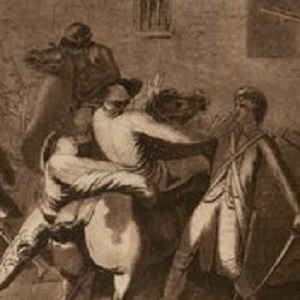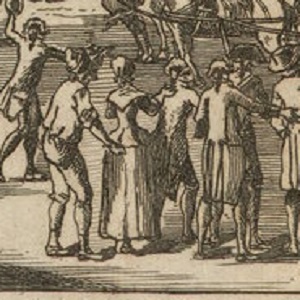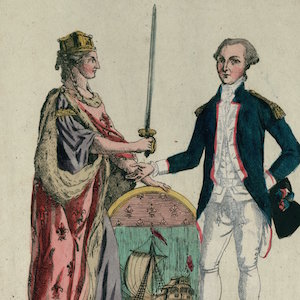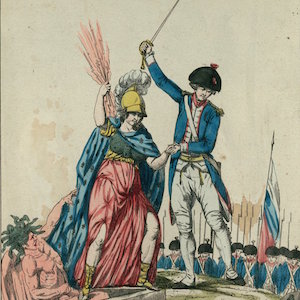Early Modern (1450 CE - 1800 CE)

Fleeing by Design or the Perjurer Louis XVI
Another engraving of the King’s arrest portrays the guard apprehending Louis and his family in their flight from Paris in June 1791. From Varennes, the royal family is brought back to Paris accompanied by three deputies of the National Assembly, armed guards, and a sometimes angry crowd.

Louis XVI Stopt in his Flight at Varennes
This romantic English painting of the King’s flight suggests only a few feet separated the King from escape.

Arrest of the King at Varennes, 22 June 1791
These images, all engraved and widely circulated years after the event, show four different moments of the arrest. Each successive image renders the scene increasingly dramatic. The first, a woodcut executed shortly after the event, shows the postman alone recognizing the King.

Lafayette Receives the City’s 'Sword for the Defense of Liberty'
During the Revolution the most visible connection between America and France was Lafayette, who had volunteered for service in the American Revolution and had been mentored by Washington and Jefferson.

The French Nation Defeats Despotism
Here Lafayette’s role is praised. A warlike liberty stands with him over a defeated despotism at his feet. Revolutionaries often represented despotism as a multi-headed monster.

Burning the Guardhouse on the Pont Neuf
This retrospective shows that early in the French Revolution targets were often economic. This should be no surprise as the populace had a long tradition of taking the law into its own hands to rectify what they saw as injustices.

Departments of 1798
Map of 1798 France depicting the Departments and major urban centers.
This source is a part of the The Napoleonic Experience teaching module.

Napoleon in Italy 1796-97
Map depicting Napoleon's campaigns in Italy, 1796-97.
This source is a part of the The Napoleonic Experience teaching module.

Napoleon’s Egyptian Campaign
Map depicting Napoleon's Egyptian campaigns.
This source is a part of the The Napoleonic Experience teaching module.

Equality
At the beginning of the French Revolution, the term "equality" meant an end to the legal differences that had characterized the Old Regime. For example, all individuals would be subject to the same regimen of taxation.